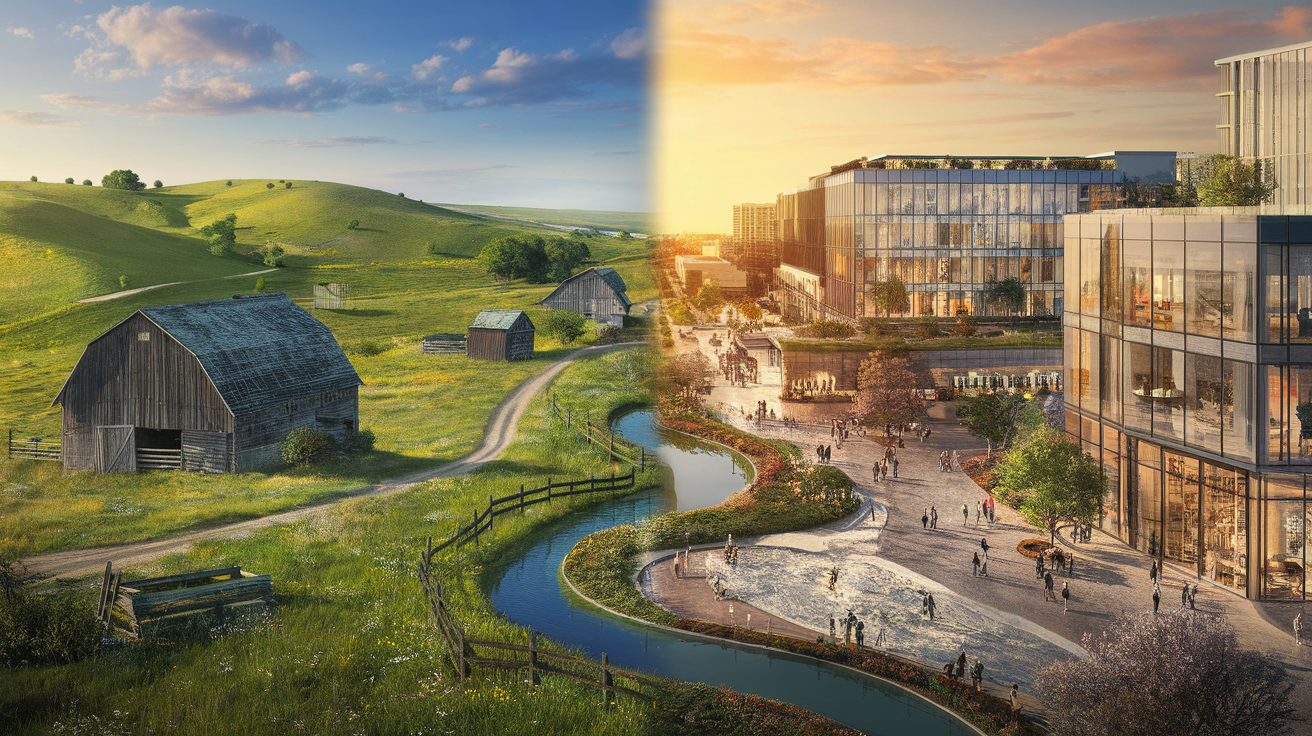Fredericksburg, Texas, is a charming spot in the Hill Country, known for its rolling hills, historic German roots, and small-town vibe.
Picture quiet streets lined with old wineries, family farms, and shops selling handmade goods.
But change is coming fast. A huge 22-acre project called "The Meuse" is set to turn some of the last empty land in town into a fancy mixed-use spot.
It promises a Kimpton boutique hotel with plush rooms, upscale eateries for fine dining, and high-end stores like Padre's Wine Company for rare vintages and Lucchese Bootmaker for custom cowboy boots.
Construction kicks off in October 2025, and the whole thing should open by 2027.
Imagine strolling through Fredericksburg on a sunny afternoon. Right now, you might grab a peach from a roadside stand or sip wine at a cozy vineyard.
Soon, that could mix with luxury shoppers browsing designer items or hotel guests enjoying spa treatments. Developers say this will create jobs, draw tourists, and pump money into the local economy.
According to a report from MySanAntonio.com, the project aims to blend modern flair with the town's heritage, keeping some green spaces and nodding to local history in its design.
But not everyone is cheering. Longtime residents like Sarah Thompson, a local farmer who's lived there for decades, worry it might spoil what makes Fredericksburg special.
"We've got this peaceful, rural feel," she says. "Big developments like this could turn us into just another crowded tourist trap."
On the flip side, business owners like Mike Rivera, who runs a nearby cafe, see opportunity. "More visitors mean more customers," he notes. "It could help our town grow without losing its heart."
The debate heats up over traffic jams on the narrow roads, rising prices that might push out everyday folks, and a shift in culture from laid-back country life to flashy urban style.
Some fear the last bits of open land vanishing under concrete, erasing spots for wildlife and quiet hikes. Others argue it's progress, bringing in revenue for schools and services.
Experts from the Texas Historical Commission point out that Fredericksburg's German settler history, with its old buildings and festivals, could clash with this sleek new addition.
Urban planners, like those cited in planning journals, warn that such projects often spike housing costs, making it hard for locals to afford staying.
This isn't just about buildings; it's about identity. As one city council member put it in a recent meeting, "We're at a crossroads."
The controversy boils down to a big question: Should Fredericksburg chase luxury growth to thrive in today's world, or protect its rural charm at the risk of falling behind?
It's a divide that's got neighbors talking heatedly over coffee, with facts showing both economic wins and cultural losses.
Whatever happens, "The Meuse" could redefine this Hill Country gem for generations.

